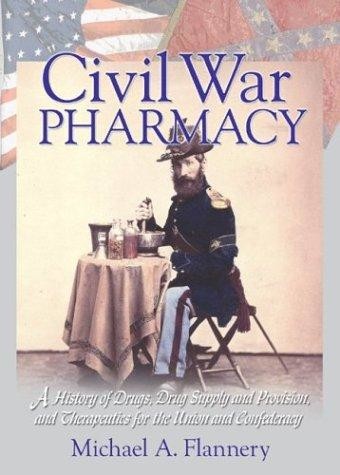(Ebook) Civil War Pharmacy by Michael Flannery ISBN 9780789015020, 0789015021
Examine a previously unexplored aspect of Civil War military medicine! Here is the first comprehensive examination of pharmaceutical practice and drug provision during the Civil War. While numerous books have recounted the history of medicine in the Civil War, little has been said about the drugs that were used, the people who provided and prepared them, and how they were supplied. This is the first book to provide detailed discussion of the role of pharmacy. Among the topics covered in this essential volume are the duties of medical purveyors, the role of the hospital steward, and the nature and state of medical substances commonly used in the 1860s. This last subject would become a matter of considerable controversy and ultimately cost William Hammond, the brilliant and innovative Surgeon General, his career in the Union Army. This richly detailed book shows why the South found drug provision especially difficult and describes the valiant efforts of Confederate sympathizers to run the Union blockade in order to smuggle in their precious cargoes. You’ll also learn about the scurrilous privateers who were out to make a personal fortune at the expense of both the Union and the Confederacy. In addition, Civil War Pharmacy illuminates the systematic effort of pharmacists, physicians, and botanists to derive from Southern plants adequate substitutes for foreign substances that were difficult, if not impossible, to obtain in the Confederacy. In this painstakingly researched yet highly readable book, Michael A. Flannery, co-author of the critically acclaimed America’s Botanico-Medical Movements: Vox Populi, examines all these topics and more. In addition, he assesses the relative successes and failures of the pharmaceutical aspect of health care at the time—successes and failures that affected every man in army camps and in the field. Civil War Pharmacy: A History of Drugs, Drug Supply and Provision, and Therapeutics for the Union and Confederacy includes photographs, helpful tables and figures, and six appendices that make hard-to-find information easy to access and understand. You’ll find: the Standard Supply Table of Indigenous Remedies (1863) Circular No. 6 from the Surgeon General’s Office (May 4, 1863), calling for the removal of calomel and tartar emetic from the Supply Table instructions on reading and filling a 19th century prescription—with a glossary of Latin phrases and approximate measures, an excerpt from The Hospital Steward’s Manual, and more! a circular from the Confederate Medical Purveyor’s Office a Materia Medica for the South: A list of medicinal substances from Porcher’s Resources of the Southern Fields and Forests common prescriptions of the Civil War period as well as basic syrups of the era with monographs on their principal substances: alcohol, cinchona, hydrargyrum (mercury), opium, and quinine Packed with more information than can be listed here and, just as importantly, presented in a reader-friendly manner, this is a book that no one interested in Civil War history—or pharmacy history—should be without!
*Free conversion of into popular formats such as PDF, DOCX, DOC, AZW, EPUB, and MOBI after payment.


